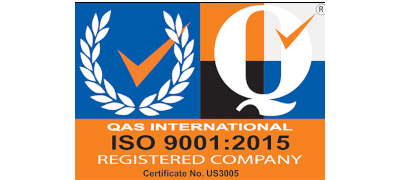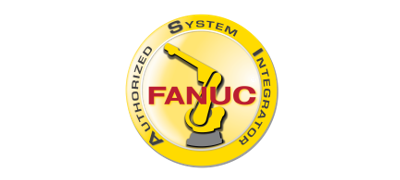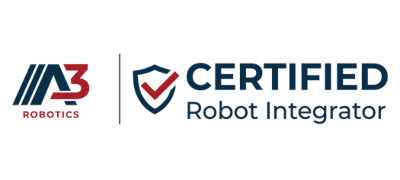How to Choose the Right Industrial Automation Partner: A Strategic Guide for Manufacturing Leaders
By Nick Archer
Introduction: Partner Choice Shapes Project Success
Selecting the right automation integration partner is one of the most consequential decisions a manufacturing organization can make. The difference between a seamless deployment and prolonged setbacks often comes down to your partner’s depth of engineering, domain expertise, and ability to deliver fully integrated solutions. At Industrial Tool, Inc. (ITI), we’ve seen firsthand how strategic partnerships drive long-term productivity, quality, and ROI across industries—from automotive to medical device manufacturing.
With over five decades of experience engineering custom automation systems, ITI believes that successful projects start with informed partner selection. This guide outlines a step-by-step framework to help manufacturers evaluate potential integrators with clarity and confidence.
I. Why Your Integration Partner Matters
Automation is not just a capital investment—it’s a business transformation. The integration partner you choose will influence:
- Project timelines and total cost of ownership
- System reliability and maintainability
- Compliance in regulated environments
- Production scalability and long-term ROI
The hidden costs of a poor partner decision—unanticipated downtime, missed deadlines, lack of flexibility—can far outweigh any upfront savings. In contrast, working with a proven partner like ITI ensures that risks are anticipated and mitigated from the start.
II. Evaluate Technical Capabilities, Not Just Promises
Look beyond polished websites. A credible automation partner should demonstrate:
- In-house multidisciplinary engineering: At ITI, our engineers span mechanical design, control systems, robotics, and manufacturing integration.
- Proven robotic integration skills: As an Authorized FANUC System Integrator, we have deployed robotic cells for machine tending, part handling, and precision assembly across North America.
- Tooling and fixture expertise: ITI designs custom hydraulic and pneumatic workholding-fixtures, a critical asset in high-precision and automated environments.
III. Consider Industry-Specific Experience
Not all integrators are built for your industry. Success in medical, aerospace, and automotive automation depends on domain fluency:
- Regulatory knowledge: ITI has extensive experience delivering systems that comply with FDA, ISO, and automotive industry requirements.
- Cleanroom readiness: We’ve engineered automated solutions for medical device, defense, and semiconductor manufacturers where particulate control, traceability, and process validation are paramount.
- High-volume throughput: In automotive programs, we design and integrate systems that operate at scale—consistently, safely, and with minimal operator intervention.
IV. Understand Their Project Management Approach
Technical ability means little without structured execution. ITI delivers turnkey systems using a disciplined approach:
- Defined milestones and phase gates
- Dedicated project managers for clear communication
- Agile design reviews and flexible change handling
- In-house build, test, and pre-install validation
Ask integrators how they track progress, manage resources, and respond to change requests. ITI's process ensures accountability and alignment at every stage.
V. Prioritize True System Integration
Modern manufacturing environments are rarely greenfield. A competent partner must:
- Interface with legacy equipment
- Integrate new robotics with CNCs and PLCs
- Support communication protocols like EtherNet/IP, Profinet, and Modbus
- Provide custom interfaces, HMI screens, and data reporting tools
ITI’s turnkey solutions connect every element—from robots and machines to fixtures and controls—into a unified, operator-friendly system.
VI. Implementation Support is Not Optional
Successful automation doesn’t end at install. ITI provides:
- On-site training and commissioning
- Phone and remote diagnostics support
- Spare parts planning and preventative maintenance
- System upgrades and line expansions
We also offer ROI modeling tools to help clients measure long-term returns. Choose a partner that will support your system’s entire lifecycle, not just the launch.
VII. A Structured Selection Framework
To streamline your decision-making, we recommend a weighted scoring system that accounts for:
- Engineering and integration capabilities
- Industry-specific experience
- Implementation methodology
- Support infrastructure
- Cultural fit and communication style
Insist on plant visits, demo reviews, and conversations with past customers. A reference from a peer in your industry is often the most reliable insight.
Data-Driven Trends That Reinforce the Case
- 67% of manufacturers cite “finding the right automation partner” as a top barrier to digital transformation (Deloitte, 2024).
- Companies that follow structured selection processes are 35% more likely to achieve successful automation outcomes (McKinsey, 2024).
- A3 data suggests 58% of failed automation projects result from weak partner alignment —not technology flaws.
What Sets ITI Apart
- Turnkey Integration: From concept to install, everything is managed under one roof—no juggling vendors.
- Engineering Depth: 50+ years of precision automation, including robotic cells, custom fixtures, and special machines.
- Sector Fluency: Deep expertise in aerospace, automotive, medical, and defense manufacturing environments.
- Long-Term Support: Proven systems backed by responsive service and system expansion capabilities.
Conclusion: Invest in Partnership, Not Just Equipment
Choosing an automation partner is a strategic decision—one that can define your production success for years to come. At Industrial Tool, Inc., we don’t just build systems; we build confidence.
If you’re ready to discuss your next automation initiative or want help developing your project scope, contact ITI’s engineering team today.


